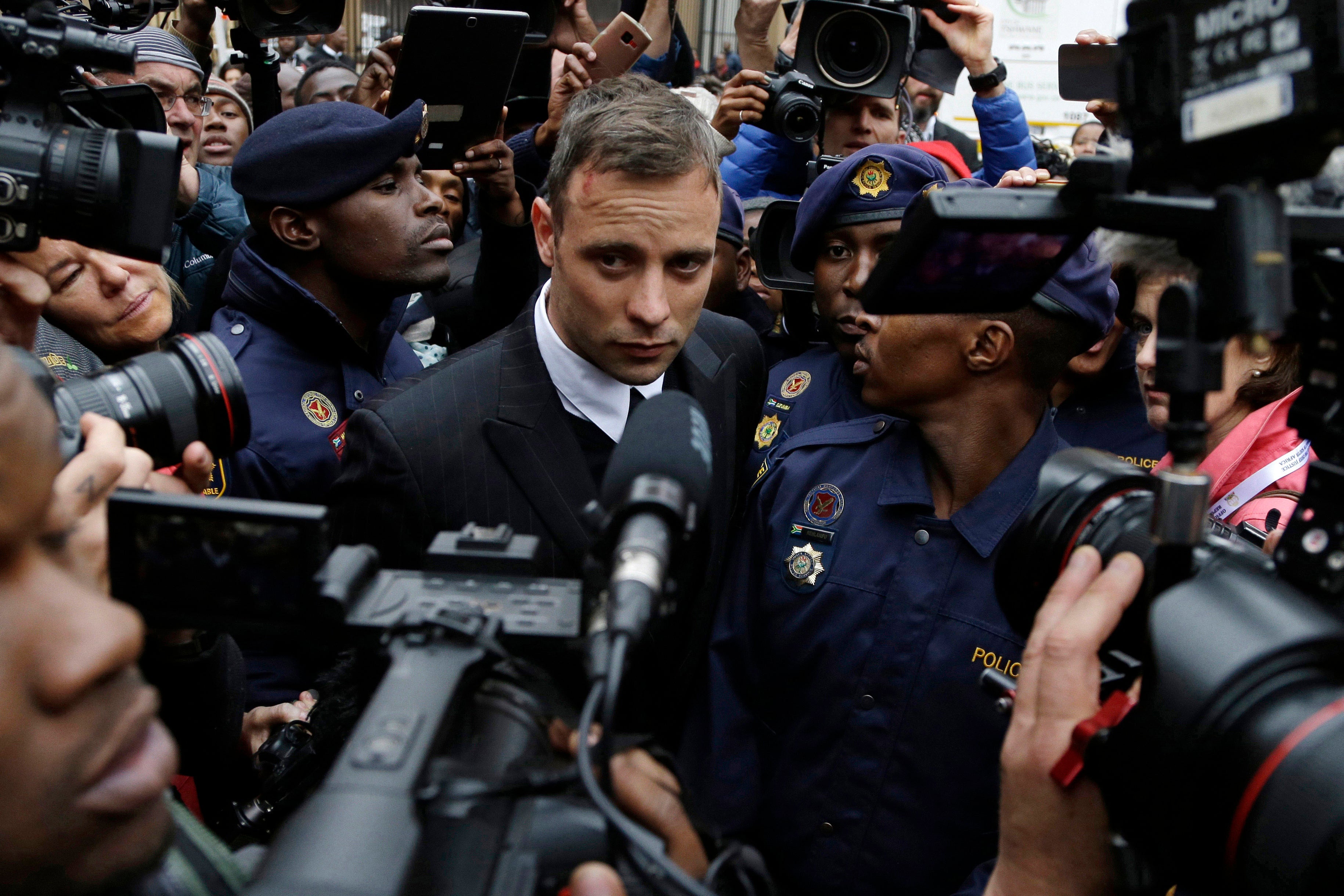What happens to Oscar Pistorius after he is released from jail?
Pistorius will be under the supervision of South Africa's Department of Correctional Services

Oscar Pistorius will be released from prison on Friday after he was granted parole nearly 11 years after killing his girlfriend Reeva Steenkamp on Valentine’s Day in 2013.
Here is a look at what will happen to Pistorius after his release under South Africa's restorative justice programme.
What conditions will Pistorius face on parole?
Pistorius - known as the "Blade Runner" for his carbon-fibre prosthetic legs when he was an athlete - became eligible for parole in March 2023 after he had served half of his 13 years and five months sentence for murder.
He was granted parole on 24 November 2023 to take effect on 5 January 2024
South Africa's Department of Correctional Services (DCS) said in November that Pistorius would complete the remainder of his sentence in the country's community corrections system.
He will be under the supervision of the DCS and will be subjected to parole conditions until his sentence expires in December 2029.
He will be assigned a monitoring official, who will have to be kept informed when Pistorius is seeking job opportunities or moving homes.
As part of the conditions, Pistorius will not be allowed to consume alcohol and other prohibited substances, and will be restricted from doing media interviews, the DCS said.
He will also be expected to be home at particular hours of the day. The DCS has not specified the hours.
Pistorius will also have to attend programmes on gender-based violence and continue therapy sessions on anger management, a lawyer for the Steenkamp family said shortly after he was granted parole.
He is expected to live in Pretoria, at least initially. In his uncle's home.
Why was Pistorius considered for early release?
Several factors are typically taken into account by a parole board, including the nature of the crime, the possibility of reoffending, conduct in prison, physical and mental wellbeing and potential threats a prisoner may face if released.
Prior to his parole, Pistorius also participated in the restorative justice programme – a system introduced after the end of apartheid to deal with apartheid-era crimes in a more participative and reconciliatory way.
An integral part of the restorative justice programme is a victim-offender dialogue that brings parties affected by a crime together to try to achieve closure. Participation is voluntary.
Pistorius was moved to a prison closer to where the Steenkamp family stayed in late 2021, ahead of reconciliation talks aimed at a potential early release from prison.
He and the late Barry Steenkamp – Reeva's father – participated in the victim-offender dialogue on 22 June 2022.
What has been the reaction to his early release?
The Steenkamp's family lawyer said in November that they were not surprised by the parole decision, issued after Pistorius had completed a set portion of his sentence.
In the run-up to the parole hearing, Reeva Steenkamp's mother June released a statement saying she was not convinced Pistorius had been rehabilitated. But she added that she had forgiven him "long ago as I knew most certainly that I would not be able to survive if I had to cling to my anger"
After Pistorius was granted parole, June Steenkamp lauded the parole board's efforts in involving the victims.
Reuters
Bookmark popover
Removed from bookmarks